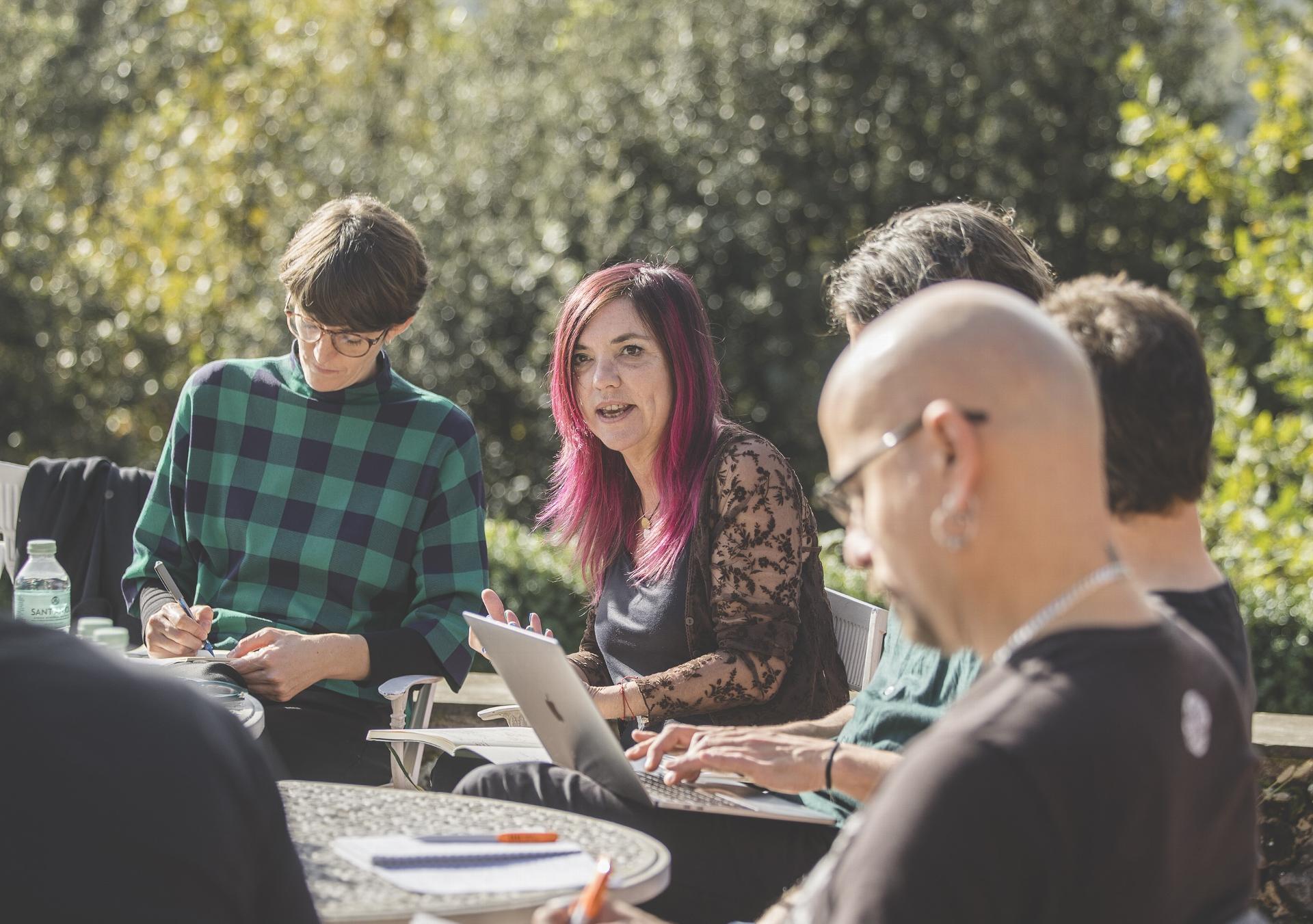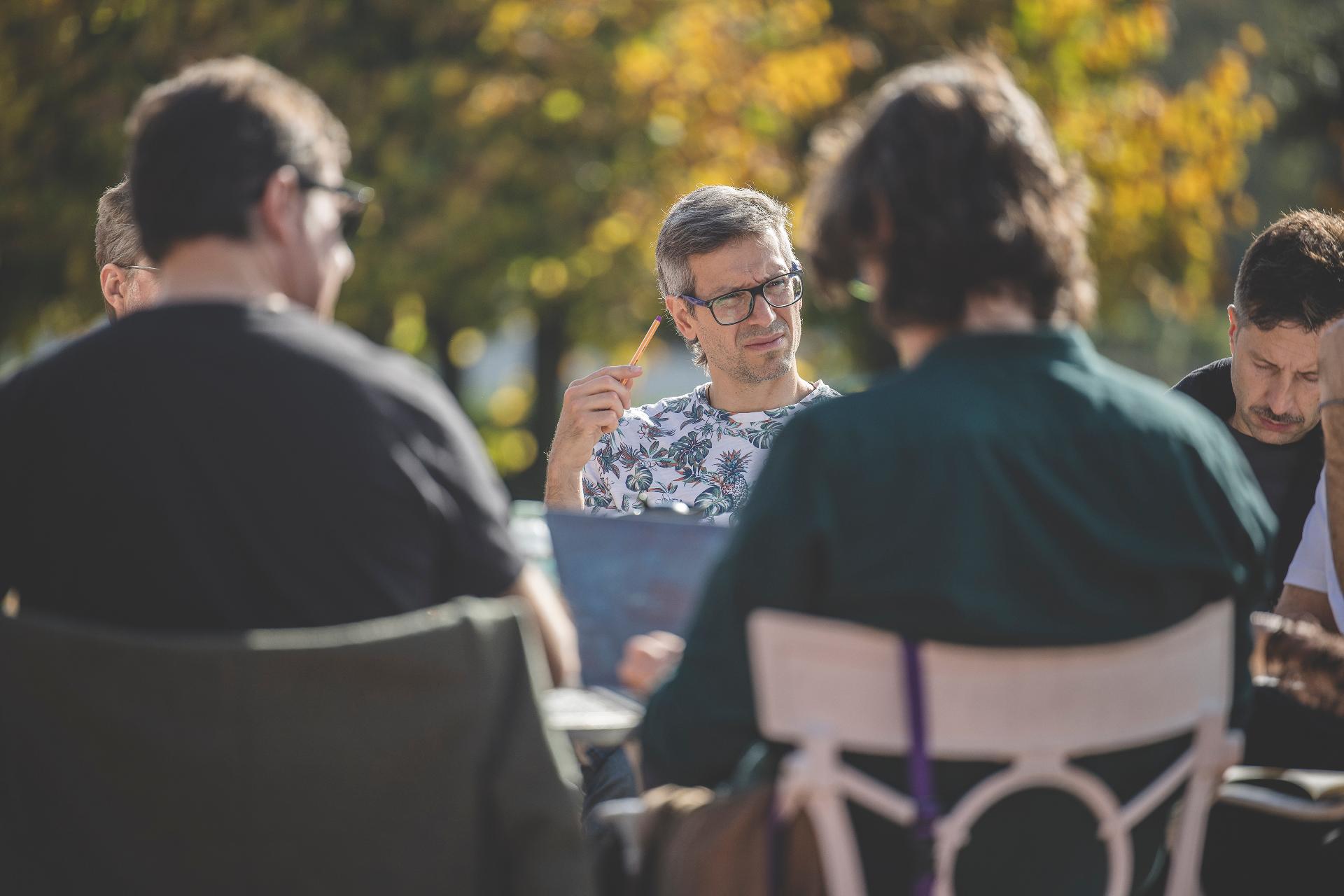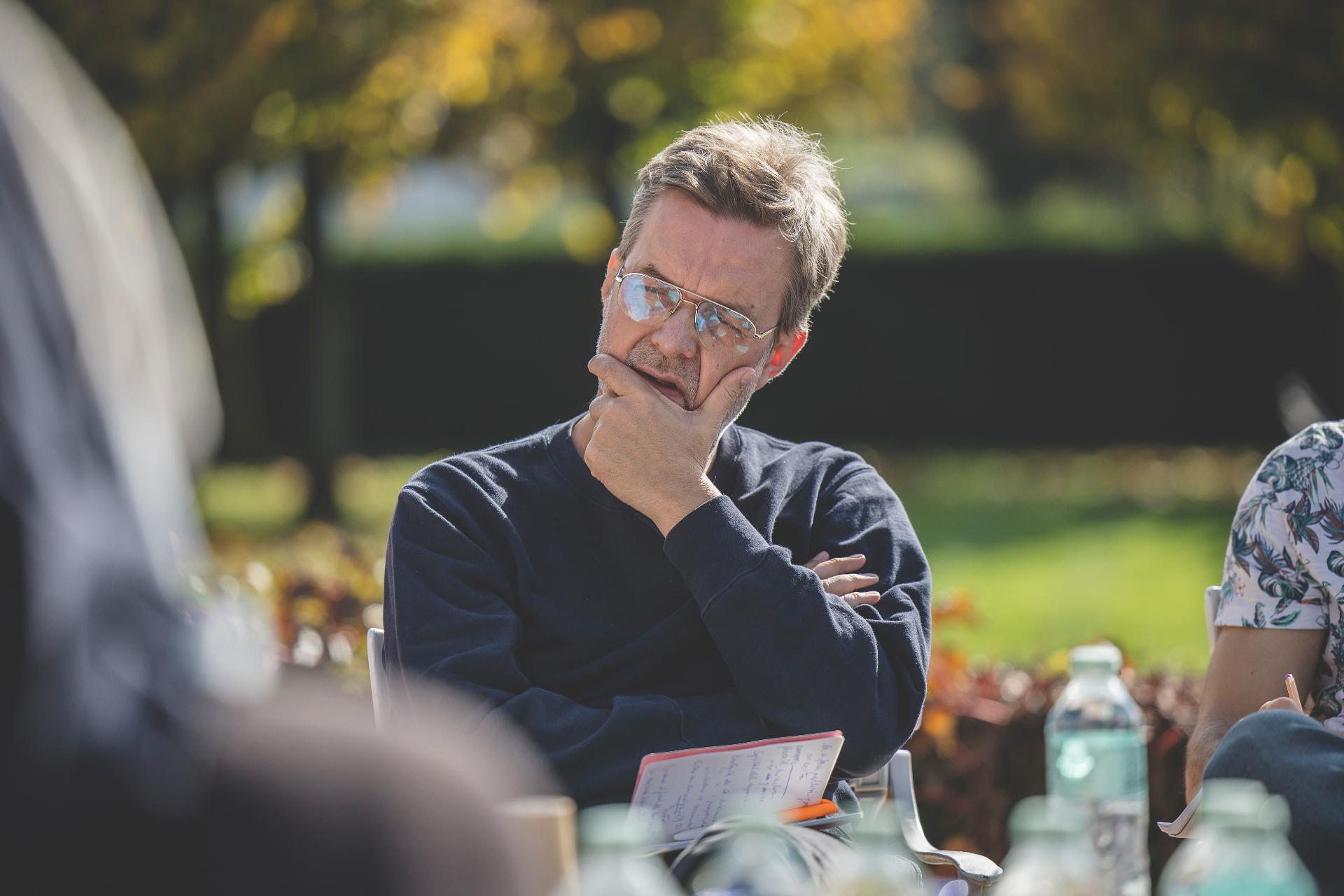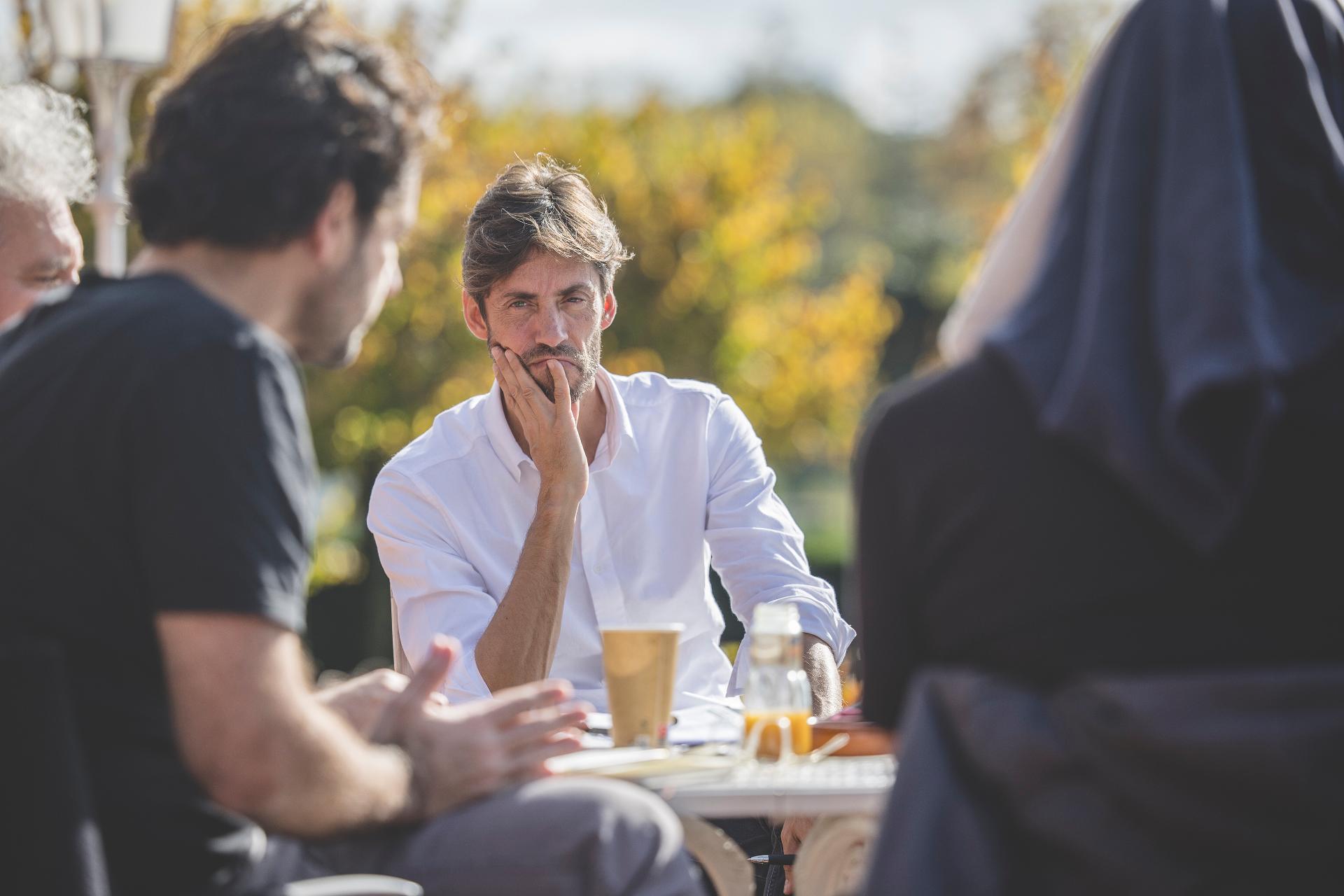Under the title "Democracy at risk. Culture and Barbarianism" Faberllull Olot hosts this international residency where participants will share experiences and proposals to halt the spread of authoritarianism and the rise of neo-fascism, which endanger democratic values.
The residency's curator, Marcelo Expósito, an artist and cultural critic, initiates his thought process from the reflection that “in the face of a global systemic crisis, we must defend the radicalization of democracy, while continuing to raise a legitimate criticism of the structural failures of existing democratic systems”. The residency programme also seeks to emphasize that the concrete resistance to the new authoritarianism draws on a rich tradition of challenging inequalities and advocating for democratic devolution, often advanced by individuals and groups who have been rendered invisible, silenced, or even eliminated by the historical forces of modernization.
This residency, which is promoted by the Institut Ramon Llull, aims to create a platform for participants to engage in dialogue and coexist with one another. Moreover, it seeks to establish a network of collaboration between international spaces of thought. Participants will reflect on a variety of topics, including new and old denials, the degradation of democratic public discourse, the reactionary coopting of ideas of subversion or disobedience, global cultural conflicts, new political experimentation, and the present-day relevance of decolonial, feminist, and climate justice ideologies through conversations and debates.
The residents:
The residents were divided into two groups. From 5 to 8 November, Faberllull Olot hosted the Argentine doctor of philosophy, researcher and professor Luis Ignacio García; the doctor of sociology Rafael Heiber, who lives between Madrid and Brazil; the Basque journalist Hibai Arbide, who resides in Athens; the educator and economist Pau Llonch; the philosophy professor Laura Llevadot; the curator, teacher and researcher Bani Brusadin; the art historian Manuel Borja-Villel; the playwright Roger Bernat; the lawyer and expert in mediation between victims and former members of ETA Eduardo Santos; and the musician, journalist and cultural activist Edi Pou.
The second group met from 8 to 11 November in Faberllull. It comprised the political scientist and specialist in political philosophy Florencia Montes Páez (Argentina); the Peruvian artist Daniela Ortiz; the Chilean industrial and political engineer Giorgio Jackson; the Sevillian labour lawyer Pastora Filigrana; the organizer for the rights of migrants Valery Alzaga (Mexico); the doctor in Art History Jaime Vindel, from Madrid; the journalist Olga Rodríguez; the doctor in Philosophy, researcher and professor Paula Kuffer; and the Girona artist Núria Güell; and the multidisciplinary artist Beatrice Simoncini (Italy).
Schedule of activities:
The residency program includes closed-group discussions among participants and two public activities. On Wednesday 6 November, at 6 pm at the Espai Cràter d 'Olot, Roger Bernat, Laura Llevadot and Bani Brusadin discussed Subversion and the creation of new imaginaries. The event was moderated by the director of the Institut Ramon Llull, Pere Almeda.
On Friday, November 8, at 6:00 p.m. at the CCCB, two consecutive public round tables were held, with row 0 of some people, groups and organizations from the city of Barcelona and its surroundings. First, The borders continue to cross us, with Daniela Ortiz and Hibai Arbide in conversation with Marcelo Expósito and Pere Almeda. Then, A democracy of differences, with Pastora Filigrana, Florencia Montes Páez and Núria Güell in conversation with Marcelo Expósito and Pere Almeda.
The residents discussed several topics during their closed-door conversations, including narratives of truth and lies in the public sphere, social movements, electoral cycles, and political culture, structural violence, failure of European values, networks of resilience, old and new denials, cultures of activation and resistance, counter-hegemony in cultural institutions, academic research networks and new alliances, governance and cultural changes, the meaning of disobeying today, cultures in conflict of the global geopolitical crisis, and new labour conflicts and global justice networks.










